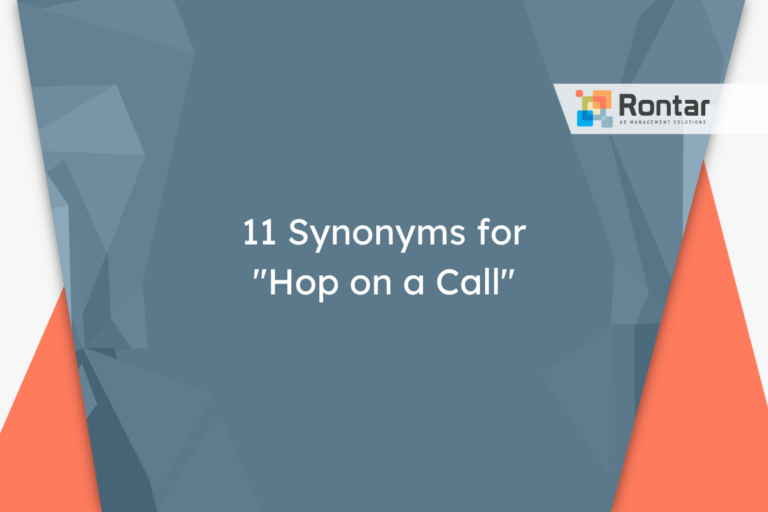12 Professional Ways to Say “Will Do” in an Email

In emails at work, it’s important to know how to say “will do” in different ways. This helps you sound more professional or friendly, depending on who you’re talking to.
Our list of 12 alternatives offers a range of options, from formal to casual. Choosing the right phrase can make your emails better and help you get along with coworkers and bosses.
Is It Professional to Say “Will Do” in an Email?
Using the phrase “will do” in an email can be seen as informal and polite, but whether it’s professional depends on the context and your relationship with the person you’re emailing. This phrase is casual and friendly, making it a good fit for conversations with colleagues you know well or when you’re in a more relaxed work environment. However, for formal communications, especially with people you’re not familiar with or in traditional industries, it might be better to choose a different way to express your acknowledgment.
Email example:
Hi Alex, Thanks for the heads up. Will do! Best, Jamie
Pros:
- Shows a positive and willing attitude.
- Quick and efficient for fast-paced work environments.
- Creates a friendly and approachable tone.
Cons:
- May be perceived as too casual in formal settings.
- Lacks detail about how or when the task will be accomplished.
- Could be misunderstood by non-native English speakers unfamiliar with informal phrases.
While “will do” is easy and friendly, there are times you might want to pick a synonym or an alternative phrase. This is especially true if you’re aiming for a more formal tone or want to make sure your message is clear and understood by everyone, regardless of their familiarity with English idioms. Using alternatives can also help you provide more detail about how you plan to tackle the task, which can be reassuring to the person asking for your help.
12 Other Ways to Say “Will Do” in an Email
When you want to acknowledge a task in an email, there are several alternatives to saying “will do” that can suit different tones and situations. Here’s a list of 12 other ways you can express your willingness to take on a task:
- I’ll take care of it
- Will handle it
- Consider it done
- I’m on it
- I’ll get right on it
- Understood
- Certainly
- Of course
- Absolutely
- Definitely
- Sure thing
- On my list
1. I’ll take care of it
This alternative is more polite and slightly more formal than “will do,” conveying a sense of responsibility and assurance. It’s a great choice for professional settings where you want to show your commitment to handling a task.
This phrase is well-suited for emails to managers or colleagues in situations where you’re being entrusted with a specific responsibility. It’s appropriate for use in both formal and informal emails, depending on the tone of the rest of your message.
Here’s how you could use this phrase in an email:
Hi Mark, Thank you for bringing this to my attention. I'll take care of it. Best regards, Emily
2. Will handle it
Using “will handle it” is a professional, polite way to convey that you’re in control of the situation. This phrase has a can-do attitude and is a bit more direct than some of the other synonyms.
It’s a good fit for emails where you want to reassure the sender that you have everything under control, ideal for interactions with supervisors or project managers. Depending on your relationship with the recipient, this phrase can be used in both slightly formal and informal contexts.
Here’s a sample email:
Hello Tina, Received your request. Will handle it by this afternoon. Regards, Liam
3. Consider it done
“Consider it done” is an assurance that not only will you do the task, but it’s as good as completed. It’s informal but very polite and shows a high level of confidence and reliability.
This phrase is perfect for messages to close colleagues or within teams where there’s a high level of trust and camaraderie. It might be too casual for very formal emails, but it’s great for most workplace communications.
Here is a quick example:
Hey Sarah, Thanks for the heads-up. Consider it done. Cheers, Derek
4. I’m on it
“I’m on it” is informal and suggests immediate action. It’s a way of saying you’re already working on the task or will start at once. This phrase is very polite and conveys a proactive attitude.
It works well in fast-paced work environments or when responding to colleagues with whom you have a good working relationship. It’s less suited for formal communications or when talking to someone you don’t know well.
Example:
Hi Joe, Just saw your message. I'm on it. Thanks, Ava
5. I’ll get right on it
“I’ll get right on it” communicates not just willingness but also urgency. It’s polite and a bit more formal than “I’m on it,” and it shows that you prioritize the task at hand.
This is an excellent choice for responding to urgent requests or when you want to make a good impression on someone by showing that their request is your top priority. It’s suitable for both formal and informal emails, depending on the context of your relationship with the recipient.
Example message:
Hi Ellen, Acknowledged. I'll get right on it. Warm regards, Nathan
6. Understood
“Understood” is very formal and professional. It clearly communicates that you have received and comprehend the instructions or the request made. This alternative is straightforward and to the point.
This phrase is particularly well-suited for formal email exchanges, such as with senior management or when confirming receipt of important instructions. It’s less personal, so it might not be the best choice for casual workplace conversations.
Here’s a sample use in an email:
Dear Mrs. Thompson, Understood. I will proceed as instructed. Sincerely, George
7. Certainly
“Certainly” is a polite and professional way to affirm that you will do something. It carries a sense of assurance and positivity, making it suitable for both formal and informal emails.
This alternative is great when you want to sound agreeable and cooperative. It works well in customer service emails, with colleagues, or when replying to requests from higher-ups where you want to convey willingness without being overly casual.
Example:
Hello Dr. Patel, Thank you for your email. Certainly, I will ensure it's done by tomorrow. Best, Sophia
8. Of course
“Of course” implies that the task is reasonable or expected, showing a polite and informal agreement. It’s a friendly response that suggests eagerness to help or comply.
It’s a good choice for emails with colleagues you’re familiar with or in less formal work environments. While it’s agreeable and friendly, it might not be the best selection for very formal communications or with people you have a strictly professional relationship with.
Example email:
Hi Kevin, Of course, I'll make sure that's handled by end of day. Best wishes, Lily
9. Absolutely
“Absolutely” expresses strong agreement or affirmation, making it both informal and polite. It’s enthusiastic, conveying a positive and confident willingness to undertake a task.
This expression is suitable for emails where you want to strongly affirm your commitment or agreement to something. It’s especially effective in positive work cultures or in communications with peers you share a good rapport with. For more formal contexts, you might choose a less emphatic alternative.
Example:
Hi Maya, Absolutely, I'll have the report to you by Friday. Kind regards, Tom
10. Definitely
“Definitely” is a polite and somewhat formal way of showing firm agreement or commitment. It suggests certainty and reliability without being overly casual.
It’s ideal for emails where you need to express your commitment clearly and firmly, such as when confirming details of a project or task. This phrase works well in both professional settings and more casual conversations, offering a balance between formality and friendliness.
Example:
Hello Susan, Definitely, I will update you as soon as I have more information. Regards, Eric
11. Sure thing
“Sure thing” is very informal and conveys a casual and friendly willingness to comply. It’s polite but best reserved for communications with close colleagues or in environments where casual language is the norm.
This phrase is perfect for quick, informal exchanges or when responding to someone you have a very comfortable relationship with. It might not be appropriate in formal emails or with senior management, unless you know they prefer a casual communication style.
Here’s a casual email example:
Hey Jordan, Sure thing, I'll look into it and let you know what I find. Cheers, Alex
12. On my list
“On my list” suggests that you have planned or prioritized the task, making it a polite and somewhat informal response. It’s a good way to indicate that you’re organized and have a handle on your responsibilities.
This phrase works well when you want to reassure the sender that their request has been noted and will be addressed. It’s suitable for communication with peers or in a relaxed work environment. For more formal requests, a phrase that provides a bit more detail on timing might be preferred.
Here’s how it could look in an email:
Hi Brenda, Got your note—on my list for today. Best, Carlos
Final Thoughts
We recommend considering the context of your communication and the relationship with your recipient when choosing an alternative to “will do.” Synonyms and alternatives can help tailor your message to match the expected tone, making your emails more effective and appropriate for various situations. Using a variety of phrases can also keep your emails engaging and prevent them from becoming repetitive.






